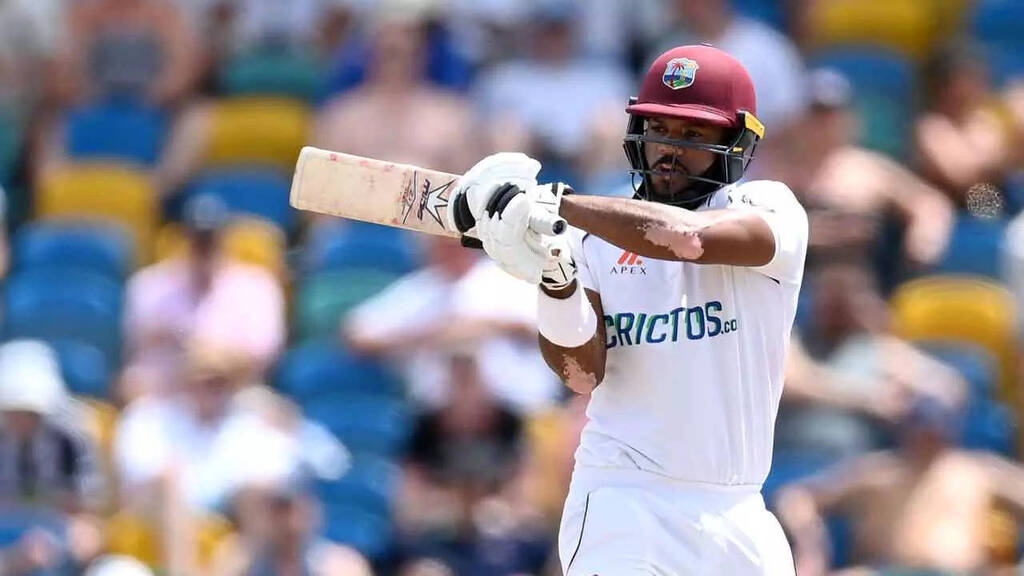John Campbell of the West Indies drew attention with his debut Test century during the ongoing second and final Test against India at the Arun Jaitley Stadium, Delhi, on October 13, 2025. With the West Indies following on after being dismissed for 248 in reply to India's massive 518/5 declared, Campbell's innings bore the mark of a calm and measured attitude, displaying maturity and fortitude to finally afford the tourists valuable stability, who at one point faced another Test innings disaster.
As Campbell finally reached the three figures, he not only reached a personal milestone, but finally ended a few long waits in West Indies cricket history, which made the achievements worth waiting for. His fight and discipline in making 115 runs from 199 balls was surely a highlighted moment to remember for the West Indies’ challenging series against a dominant Indian attack.
Records Broken by John Campbell’s Historic Knock
🚨 JOHN CAMPBELL - FIRST WEST INDIES OPENER IN 23 YEARS TO SCORE A TEST HUNDRED IN INDIA. 🚨 pic.twitter.com/vrgU0QB1rX
— Mufaddal Vohra (@mufaddal_vohra) October 13, 2025
It took Campbell 48 innings to reach his first Test century, thus becoming the second slowest opener to achieve this benchmark. The all-time slowest opener to reach this landmark was South Africa's Trevor Goddard (58 innings). How did Campbell do in comparison to other West Indies openers? He was quicker than West Indies’ Daren Ganga (44), but slower than Imrul Kayes (32) from Bangladesh and Bob Simpson (31) from Australia.
John Campbell was also the first West Indies opener to score a Test century since March 2023. In that instance, Tagenarine Chanderpaul scored an unbeaten 207 against Zimbabwe in Bulawayo. Campbell also earned the distinction of being the first Test century for any West Indies batter in 2025, following Justin Greaves (115)* for Bangladesh in 2024.
Adding another historical aspect, Campbell was also the first West Indies opener to score a Test hundred in India since 2002, when Wavell Hinds did so in Kolkata. Campbell was also the first WI opener to make a Test ton against India since Lendl Simmons (1) in 2006, and was only the 2nd batter for WI to score a Test century in Delhi, after Shivnarine Chanderpaul's (118) in 2011.

